Royal Aeronautical Society Podcast
The Royal Aeronautical Society is the world’s only professional body dedicated to the entire aerospace community. Established in 1866 to further the art, science and engineering of aeronautics, the Society has been at the forefront of developments in aerospace ever since.
Episodes
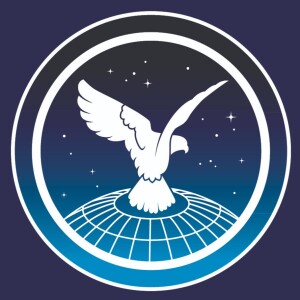
Thursday Oct 25, 2018
Thursday Oct 25, 2018
Hawker Siddeley test pilot A. W. “Bill” Bedford gives his audience an insight into the challenges facing test pilots in the 1960s and the years ahead. He also highlights the role and key qualities required of a test pilot, together with an appeal for the pilots and scientist to work closer together.
The recording includes a fascinating discussion from the floor, with points raised by the leading test pilots of the day, including Brian Trubshaw, D. P. Davies and Capt. Eric “Winkle” Brown. There are also tributes from, amongst others, Sir Sydney Camm and Sir Morien Morgan.
Bill Bedford gave the inaugural Royal Aeronautical Society Test Pilots Group Lecture on 16 April 1964 and the lecture was chaired by the President of the Royal Aeronautical Society, Professor A. R. Collar. The podcast was edited by Mike Stanberry FRAeS and it was digitised thanks to a grant from the Royal Aeronautical Society Foundation.
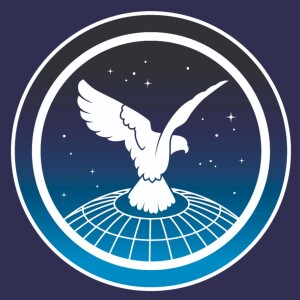
Thursday Oct 25, 2018
Thursday Oct 25, 2018
World War I pilot Clayton Knight reminisces about his training and hair-raising service on the Western Front in 1917 and 1918.
Knight was one of the first 150 American aviators who were sent to Europe in the summer of 1917. In this recording he discusses his training, including staying in digs at a number of Oxford Colleges, before recounting a number of hair-rising stories about his service with the Royal Flying Corps on the Western Front, being shot down by Oberleutnant Harald Auffahrt on 5 October 1918 and finishing the war as prisoner of war in a German hospital. Knight later went onto be a noted aeronautical illustrator, including providing the drawings for the comic strip Ace Drummond.
Please note, due to the age of this recording, there are issues with the sound quality of this recording.
The podcast was edited by Mike Stanberry FRAeS and it was digitised thanks to a grant from the Royal Aeronautical Society Foundation.
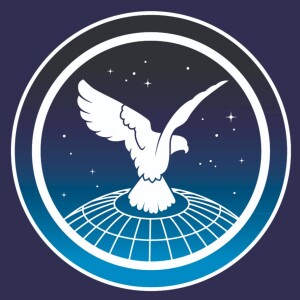
Tuesday Oct 09, 2018
Tuesday Oct 09, 2018
The Rotorcraft Group's annual Cierva Named Lecture is presented by Igor Cherepinsky, Director of Autonomy Programs, Sikorsky Aircraft, a Lockheed Martin Company.
The presentation will discuss the use of autonomy in current and future aircraft in concert with an onboard or offboard pilot/operator to greatly improve the safety and effectiveness of missions. Several use cases will be presented, where the use of autonomy greatly improves positive outcomes for a given mission. The presentation will also discuss challenges in certification as well as general approaches to certification.
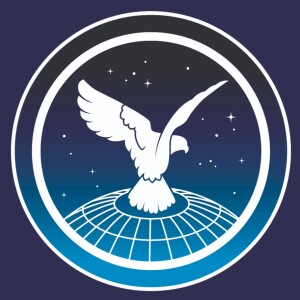
Wednesday Oct 03, 2018
Wednesday Oct 03, 2018
The existing National Aerospace hub at Pakistan Aeronautical Complex (PAC) Kamra has come a long way in aggregating the experience in highly specialized part manufacturing, special process / coatings, maintenance, repair & overhaul (MRO) of military aircraft & turbojet / turboprop engines (over 1000 aircraft & 1000 engines overhauled at PAC since 1974), to manufacturing of Super Mushshak aircraft, co-production of Falco UAVs, co-development and manufacture with China of JF-17 Thunder Aircraft.
Building on the enormous existing capability, a state of the art Aviation City Pakistan is being established in Kamra with the National Aerospace Science & Technology Park (NASTP) as a cluster of Design and R&D setups, universities, vocational training institutes, private aerospace industry (R&D, manufacturing, warehousing, MRO), National Incubation Center (NIC) and Certification Authority, among others. One Window Operation & world class housing, and other amenities will also be part of the smart Aviation City along with the authorization of facilities and amenities of Special Economic Zones (SEZ).
The presentation will cover this in greater detail and how the eco-system of NASTP will be leveraged for academia-industry linkages to drive innovation in aerospace industry and make Pakistan future hub of aviation in South East Asia.
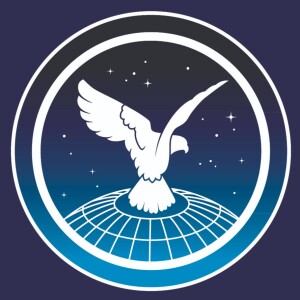
Wednesday Oct 03, 2018
Wednesday Oct 03, 2018
The presentation will cover the brief history of Application of Air Power for Counter Insurgency (COIN) Operations and will discuss in detail the Pakistan Air Force Counter Terrorism Operations Model. Moreover, detailed experience of Multi-Prong strategies employed by Pakistan Air Force during the Counter Terrorism and Insurgency Operations would also be discussed along with the challenges faced and how they were overcome. The talk will also enlighten the audience with a valuable experience gained by Pakistan Air Force during its tireless efforts to eradicate the menace of terrorism through application of Air Power over the decades.
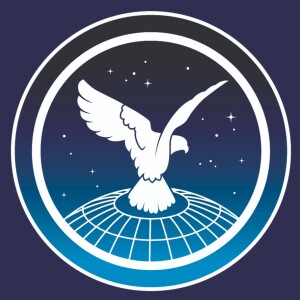
Wednesday Oct 03, 2018
Wednesday Oct 03, 2018
Til the late 60s, the Pakistan Air Force (PAF) was dependent on foreign aircraft manufacturers for maintaining its fleet and a sizeable amount of foreign exchange was being spent for ensuring operational readiness. To achieve self-reliance in the shape of maintenance, repair and overhaul, generally known as Maintenance, Repair & Overhaul (MRO), of PAF’s fighter aircraft foundation stone of Pakistan Aeronautical Complex (PAC) was laid back in 1970s. Later on aircraft manufacturing capability was also added to broaden PAC’s role and task. The complex comprises four factories broadly involved in aircraft manufacturing, MRO of existing aircraft, MRO of avionics systems, MRO of jet engines, harness manufacturing and similar other aviation related tasks. Recently a new setup named Aviation Research Innovation and Development (AvRID) has also been established. This setup is responsible to undertake research in key areas to provide technological prowess to Pakistan’s Aviation Industry by preparing technically capable human resource.
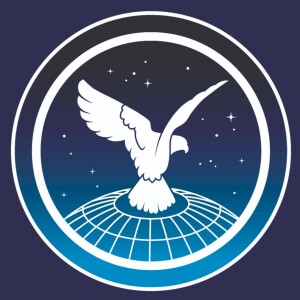
Friday Sep 21, 2018
Friday Sep 21, 2018
Captain of one of the first transatlantic flying-boats, J. C. Kelly-Rogers takes his audience through the challenges and romance of setting up and flying the transatlantic passenger route.
Starting with the agreements between the UK, Canada, Ireland and the USA to set up schemes in the late 1930s, he gives insights on how he and others helped Imperial Airways and then BOAC to overcome the challenges of establishing the first scheduled service, including surveying the route and establishing the best methods to carry-out flight-refuelling, before talking of his experiences of operating the service during the Second World War.
The lecture was originally entitled “Atlantic Flying Twenty-Five Years Ago” and was the 5th Short Brothers Memorial Lecture to the presented to the Belfast Branch of the Royal Aeronautical on 1 December 1964. The podcast was edited by Mike Stanberry FRAeS and it was digitised thanks to a grant from the Royal Aeronautical Society Foundation.
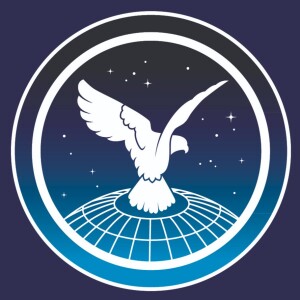
Friday Sep 21, 2018
Friday Sep 21, 2018
The Hawker Harrier test pilot John Farley, gives his views on each of the 45 V/STOL aircraft projects before 2006. Farley based his survey on the work “The V/STOL Wheel of Misfortune” which was put together by Mike Hirschberg of The American Helicopter Society.
John Farley was one of the country’s foremost experimental test pilots. After time in the RAF and Royal Aircraft Establishment Aerodynamic test flight, he joined Hawkers and became heavily involved in the development of V/STOL aircraft such as the P1127, the Harrier and the Sea Harrier.
The podcast also contains a fascinating Question and Answer sessions where Farley gives further insights into the MiG 29, safety in V/STOL aircraft and the use of fly-by-wire in modern aircraft.
The Lecture was presented to the Royal Aeronautical Society’s Historical Group on 23 November 2006. The podcast was edited by Mike Stanberry FRAeS and it was digitised thanks to a grant from the Royal Aeronautical Society Foundation.
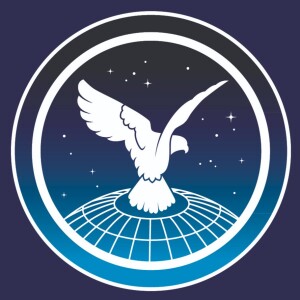
Friday Sep 21, 2018
Friday Sep 21, 2018
One of the towering figures in post-war aeronautics, Sir George gives his views on the challenges and opportunities facing the British aerospace industry in the early 1970s, from his seat at the head of British Aircraft Corporation’s board.
Starting off with a look at the growth of aviation and the state of British exports, Sir George turns to the advantages and disadvantages of international projects such as the SEPECAT Jaguar and Aérospatiale/BAC Concorde, discusses the BAC Intelsat IV satellite and concludes by giving his frank views on the impact that politicians played in the post-war aerospace industry.
Sir George started off his career under Barnes Wallis at Vickers, before moving through the company. Amongst his roles at Vickers was to head aircraft projects including the design of the Vickers Viscount and Valiant. His last roles were to mould BAC, first as Managing Director and then as Chairman.
The Lecture was the Sixth Tizard Memorial Lecture to the RAeS Boscombe Down Branch and was delivered on 29 February 1972. The podcast was edited by Mike Stanberry FRAeS and it was digitised thanks to a grant from the Royal Aeronautical Society Foundation.
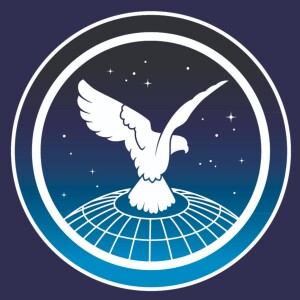
Wednesday Sep 05, 2018





